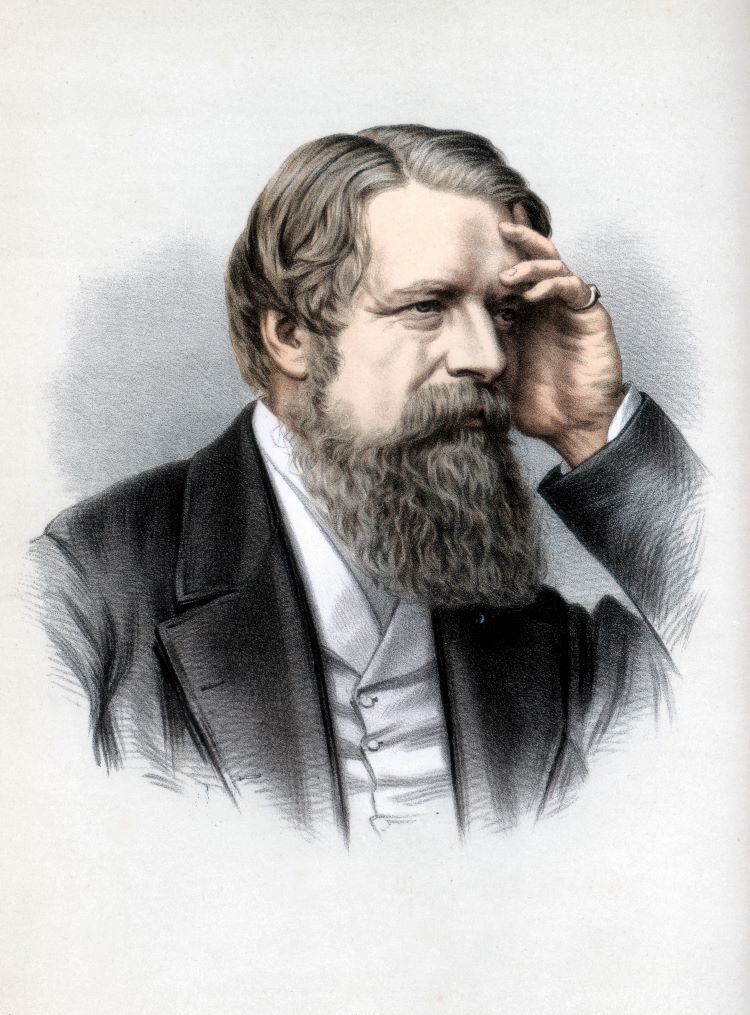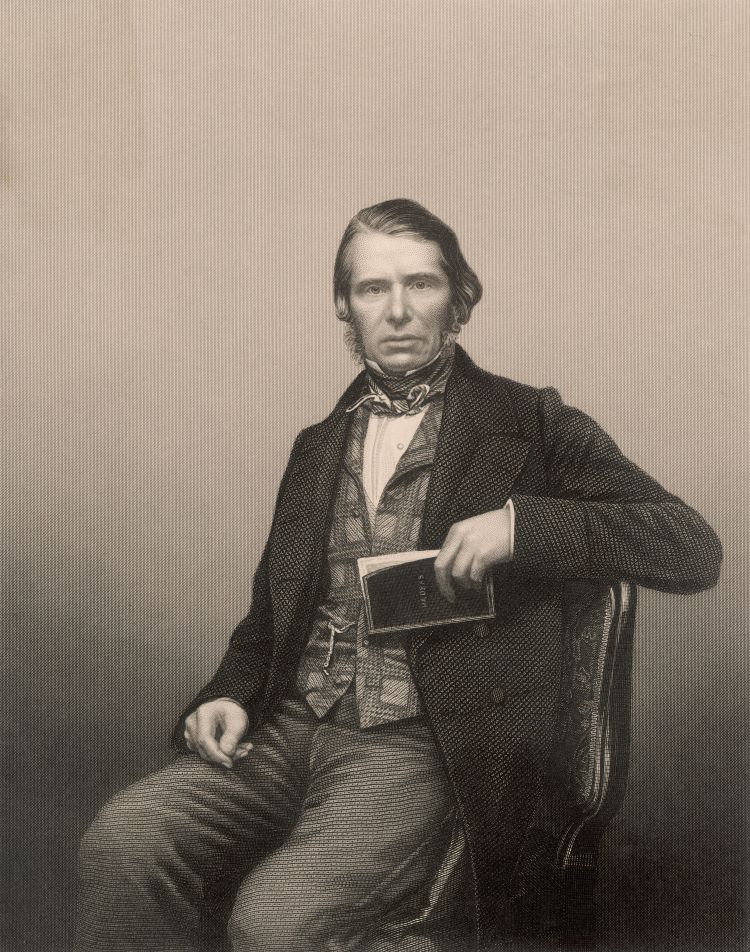A bureaucratic establishment: the founding of the civil service
9 min read
Recent anger towards the ‘blob’ from some Tories has called into question the nature of an impartial civil service. But how did this concept come into being? Andrew Southam traces its fascinating history.
Recent months have seen a fraught period in the relationship between civil servants and politicians. Negative media briefings about the Home Secretary have been seen by some in the Tory party as the work of “the blob”, and many of its MPs were already incensed by former senior cabinet office mandarin Sue Gray’s decision in March to accept appointment as Keir Starmer’s chief of staff. An internal Cabinet Office inquiry and report from the Advisory Committee on Business Appointments await.
This saga, in turn, followed on from former deputy prime minister Dominic Raab resigning in April after an independent report found he had been "intimidating" and "aggressive" in some cases towards officials. He accused a "very small minority of very activist civil servants” of blocking government reforms they didn’t like.
Such cases have raised questions about the founding principles of a modern and politically disinterested civil service transferring its loyalty between successive governments. This concept is commonly ascribed to reforms initiated by career civil servant Sir Charles Edward Trevelyan and politician and former civil servant Sir Stafford Northcote through their “Report on the Organisation of the Permanent Civil Service”, drafted 170 years ago this November, and finally printed in February 1854.
These were no starry-eyed reformers seeking to end the revolving door between Victorian politicians and civil servants, or the absence of anonymity for officials. Instead the burning preoccupation of Trevelyan, the driving force of the report, was to improve government efficiency and protect the state against revolutionary forces by creating elite administrators, who were schooled in the civilising influence of classics.
Born in 1807 as the fourth child to a Devon parish vicar from prominent gentry, Trevelyan was clever, cocksure, good at spearing wild boar on horseback and possessed a near moral fervour for improvement. After Charterhouse and the Indian civil service college at Haileybury, he climbed the East India company career ladder, where he developed a reputation for exposing information to the press, a practice he continued on his return to England by striking up a relationship with The Times editor, John Delane, becoming one of the most prolific leakers the civil service has known.
 Stafford Northcote
Stafford Northcote
His appointment as permanent head of the Treasury in 1840 remains mysterious: his close brother-in-law Thomas Babington Macaulay, a prominent Whig politician who later wrote the History of England, helpfully became war secretary the previous year.
After a poor record administering aid during the 1840s Irish Famine, Trevelyan sat from 1848 on 15 inquiries into government departments, becoming fixated on the division of labour between a higher class of clerks recruited from the best universities performing “intellectual activity” and a lower-class doing “mechanical” work.
Stafford Northcote, another aristocrat who read classics at Balliol College, Oxford, joined him when recommended by chancellor of the exchequer William Gladstone, who he had previously served as private secretary – and who later became chancellor himself.
Their enquiries culminated in Gladstone’s commission on 12 April 1853 to review departments and “place them on the footing best calculated for the efficient discharge of their important functions, according to the actual circumstances of the present time”.
This charge came at a time of pressure for improvement in national and local government from reformers such as exponents of Jeremy Bentham’s utilitarian movement, and of growing complexity in government business such as the work of factory and school inspectors and assistant poor law commissioners.
It also came in the shadow of the 1848 revolutions that were, at the time, tearing Europe apart: Britain had been lucky to escape them, but the ruling classes were rattled by a discontented middle-class rallying against aristocratic corruption and an agitating Chartist movement pursuing radical causes such as universal suffrage, the ballot and paid MPs.
Bags of guineas changed hands in favouritism for people who were ‘the unambitious and the indolent or incapable’
Some 40,000 special constables were recruited to deal with Chartist unrest in Spring 1848, giving Trevelyan and his contemporaries reason to fear a revolution here. “The revolutionary period of 1848 gave us a shake,” he recalled, “and created a disposition to put our house in order”.
Northcote and Trevelyan’s report therefore appeared to be an open attack on privilege by excoriating civil service inefficiency as a result of lazy aristocrats winning positions through the open system of patronage, as happened at the Treasury where patronage secretary Sir William Hayter sought jobs for political allies, irrespective of suitability or health.
Bags of guineas changed hands in favouritism for people who were “the unambitious and the indolent or incapable”. One longstanding provision gave jobs to the illegitimate sons of the dukes of Norfolk every generation!
Their remedy was to “carefully select” malleable young men through periodic and competing general literary exams who would be promoted throughout their careers on merit. A board of independent men including educationalists would administer the tests and assess the candidates’ character and physical fitness. “We see no other mode by which …the double object can be attained of selecting the fittest person, and of avoiding the evils of patronage,” they argued.
However, this was a significant change of position from an earlier draft that had antagonised Gladstone when he read that Trevelyan not only wanted to keep the patronage secretary but also give special treatment to the sons of “deserving public servants”. (Trevelyan had himself recommended relatives of Macaulay to the war office.)
Gladstone demanded they remove all political involvement; and he overruled their exemption for departments such as customs and excise, which they liked because the candidate was first selected through patronage and then examined, by insisting that the scheme cover every department with “unsparing vigour”.
To draw up the examinations, Northcote and Trevelyan used the educationalist Benjamin Jowett, a classical scholar and tutor at Balliol, who helped re-establish a classical education in 1830s Oxford and develop the Indian civil service exams of 1855 that also emphasised the study of Greek and Roman literature. Jowett’s proposed civil service scheme not only included classical literature as one of four papers (alongside maths and natural science; political economy, law and moral philosophy; and modern languages and modern history) but gave additional marks to the subject, favouring Oxbridge and particularly Oxford men.
Trevelyan then inadvertently undermined the report by leaking details to The Times, causing a backlash from his colleagues who were affronted by slurs on their performance.
An appalled prime minister Lord John Russell wrote to Gladstone in early 1854 hoping that he “was not thinking seriously of the plan throwing open to competition the whole civil service of the country”. Novelist Anthony Trollope, who won a sought-after Post Office clerkship through his mother’s social connections later lampooned Trevelyan as Sir Gregory Hardlines in The Three Clerks.
With most of the civil service, the cabinet and the vested interests opposed, Gladstone was isolated and unable to press ahead.
An Order in Council of July 1855 was therefore limited to creating the independent body of three civil service commissioners issuing “certificates stating that men appointed by patronage met the requirements of their departments in respect of age, health, character and education”.
Sir William Hayter could still boast in the 1850s of finding 300 jobs for the families of his Well’s constituents, employing two useful idiots (“Hayter’s idiots”) on the Treasury payroll to compete incompetently against favoured candidates.
 Charles Edward Trevelyan
Charles Edward Trevelyan
Public calls for improvement in government service heightened with a withering outcry about the war office’s performance during the Crimean War of 1853-1856, leaving badly supplied troops freezing in the winter siege of Sebastopol. Trevelyan headed the commissariat in the Treasury responsible for the logistics of provisions to the army.
Progress was slow to match expectation. Although from 1859 civil servants would only get a pension if they had received the commission’s certificate and the completely inept were weeded out by the mid-1860s, heads of department could still select just one candidate, effectively bypassing competition.
Trevelyan moved on, becoming governor of Madras in 1859, from which he was recalled a year later for leaking finance policy – the maharajah rejoicing at the news with a 41-gun salute – so chancellor of the exchequer Robert Lowe, another Oxford Greek scholar and student of Jowett, eventually pushed through the reforms in 1870 under Gladstone’s first administration.
Even now the relationship with politicians was not a presiding theme, as Lowe likewise wanted to improve the civil service with the right sort of person who received “the best education that England affords; the education of public schools and colleges and such things, which gives a sort of freemasonry among men which is not very easy to describe, but which everybody feels”.
Only in 1884 did Gladstone establish a clear distinction between civil servants and politicians by making all officials resign their position when announcing candidature for election.
It would be many years later when in 1918 Viscount Haldane of Cloan, an intellectual and former Liberal war secretary and lord chancellor, set out today’s model of the relationship between civil servants and politicians. Officials and ministers, he asserted, have an indivisible relationship in which civil servants advise without fear or favour and ministers decide, “civil servants are accountable to ministers, who in turn are accountable to Parliament”.
It came in the shadow of the 1848 revolutions that were, at the time, tearing Europe apart
Lord Hennessy has hailed the Trevelyan and Northcote reforms as “the greatest single governing gift of the 19th to the 20th century: a politically disinterested and permanent civil service with core values of integrity, propriety, objectivity and appointment on merit, able to transfer its loyalty and expertise from one elected government to the next”.
However, although their work for competitive exams and promotion on merit set in train the process creating today’s professional civil service, their influence produced a system dominated by Oxbridge, steeped in classics and eschewed experts, which took much time to correct.
And the indifference of Northcote and Trevelyan to the proximity of civil servants and politicians would probably have made them untroubled by Sue Gray’s dealings with senior Labour figures. In reverse circumstances, Trevelyan’s own successor at the Treasury was conservative MP George Alexander Hamilton, who filled the post from his political appointment as financial secretary in the government!
Both Victorian aristocrats bent on recruiting an intellectual cadre might even have been reassured by the idea of activist civil servants. After all, they wanted “permanent officers subordinate to ministers, yet possessing sufficient independence, character, ability, and experience to be able to advise, assist, and to some extent influence those who are from time to time set above them”.
Moreover, Trevelyan considered the civil service exams and training as a good grounding for a political career.
Now there’s a thought! Sue Gray for prime minister anyone?
